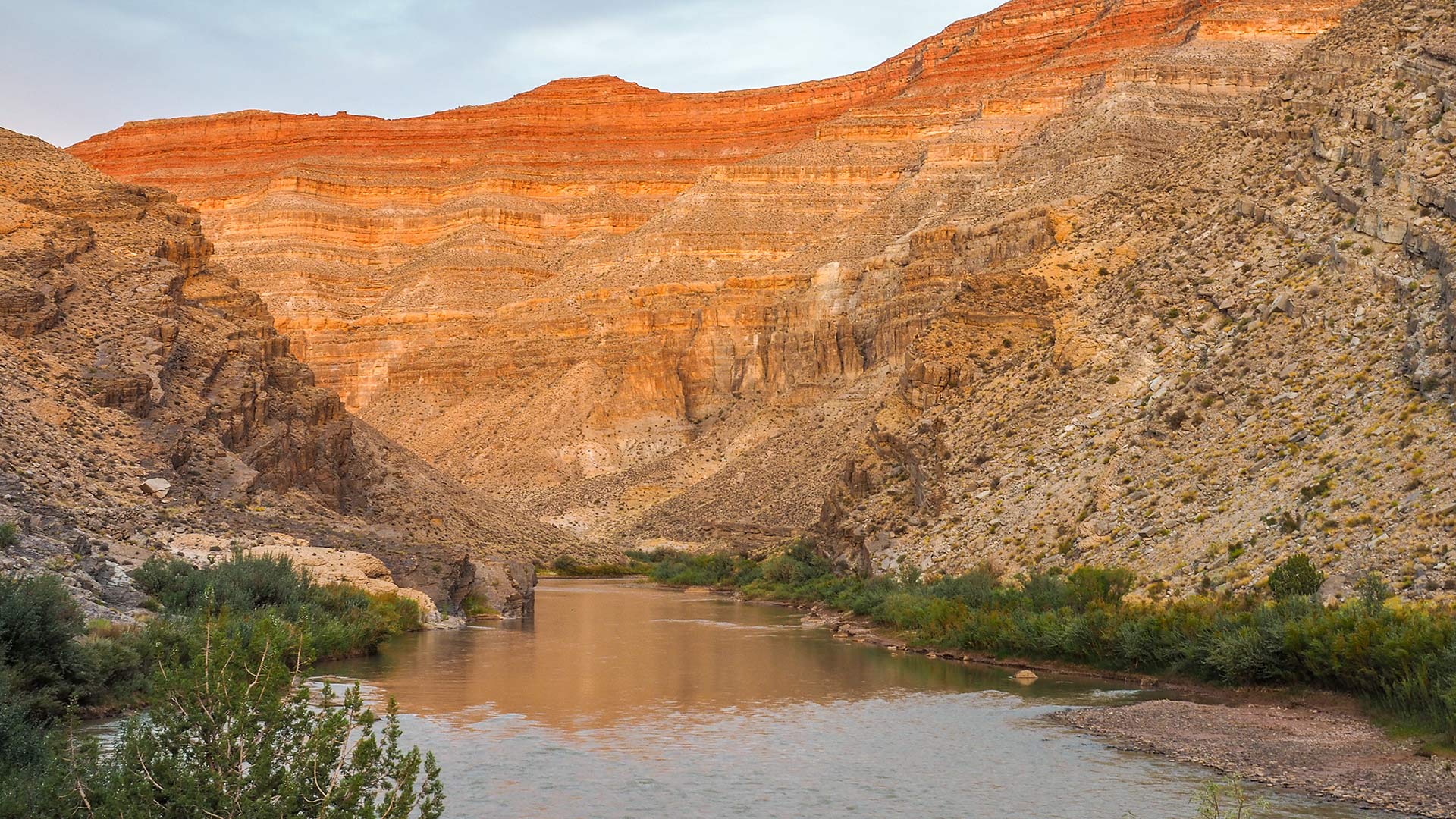 A canyon of the San Juan River.
A canyon of the San Juan River.
Considered the largest Indian Water Rights settlement in U.S. history, the Northeastern Arizona Indian Water Rights Settlement Act of 2024 may right historic wrongs.
In 1922, when governments allocated Colorado River waters, tribal nations were notably excluded from the conversation. After decades of disputes, this $5 billion act would build the necessary infrastructure for tribal nations, like the Navajo, to bring water to their people.
“A water right is a piece of paper; a settlement creates a water right in which the water gets actually put to use and turns that piece of paper into wet water for the tribal members and for their businesses,” said Tom Buschatzke, director of the Arizona Department of Water Resources. “That is the linchpin trade-off that is made, and often the tribes take a little bit less water than they think they might have legally in return for some very expensive infrastructure.”
As it stands, nearly a third of Navajo households lack running water. This bill would fund a pipeline to divert Colorado River water to these areas in need. Additionally, until that infrastructure is built, the Navajo and Hopi tribes would be able to lease their water to non-tribal entities in Arizona.
“Now the tribes might get some revenue and put it in a fund to continue paying those operating and delivery costs in the future,” Buschatzke said.
Southern Arizona’s Republican Congressman Juan Ciscomani, who introduced the House version of this bill, is optimistic it will pass given the support it has garnered.
“You don't see this often, where three different tribal nations are in agreement, along with the state of Arizona,” Ciscomani said. “It adds certainty. It gives us stability. It helps the tribes uphold their sovereignty and blaze a path forward for what's coming, including the 2026 negotiations on the Colorado River water.”
Building a Nation
Over a century and a half later, the San Juan Southern Paiute Tribe may have a federally designated reservation to call home if the Northeastern Arizona Indian Water Rights Settlement Act passes. For 160 years, the tribe has shared its territory with the Navajo Nation after U.S. military campaigns targeted Navajo tribal members. Forced to move onto the San Juan Southern Paiute Tribe’s land for asylum, the Navajo population grew so much that when the federal government designated a reservation for the Navajo Nation, it annexed San Juan Southern Paiute lands. Eventually, the San Juan Southern Paiute Tribe would be the only federally recognized tribe without a designated home. The Northeastern Arizona Indian Water Rights Settlement Act aims to rectify this historical oversight.
“We're starting from scratch,” President Robbin Preston Jr. said. “We have absolutely nothing. Even today, our reservation is not completed. This settlement will ratify the treaty between the Navajo and San Juan tribes.”
The San Juan Southern Paiute Tribe, despite residing east of the Grand Canyon between the San Juan and Colorado Rivers for centuries, was not federally recognized by the United States until December 11, 1989. This recognition allowed the tribe to claim lands shared with the Hopi and Navajo nations. After numerous legal disputes, the two tribes agreed that two parcels of land would be designated for the new San Juan Southern Paiute Tribe Reservation in exchange for dismissing their lawsuit.
That treaty, signed on March 18, 2000, has yet to be ratified by Congress. Despite that, the San Juan Southern Paiute Tribe has continued to remain in its traditional homelands.
“We have tribal members who had to move out of state, either to California, Utah... and that has a lot to do with not having the opportunities that so many people have, like housing, education, health services, and employment,” Preston said. “With this settlement and the establishment of our reservation, it gives them the opportunity to say, ‘Maybe I do want to go home. Maybe I want to bring what I've learned outside of Indian country back for the betterment of our tribe.’”
Lack of land ownership has created significant challenges for the tribe, including barriers to basic needs like water and electricity. “It’s always, 'You are within the boundaries of the Navajo Nation. You do not have that federal recognition of your land yet, so we cannot work out an agreement with you. It has to include the Navajo Nation,’” Preston explained. “When this hopefully gets done by the end of this year, it will allow us to govern ourselves and determine our own future.”
The Northeastern Arizona Indian Water Rights Settlement Act would change all this, providing the San Juan Southern Paiute community with a homeland and access to water.

By submitting your comments, you hereby give AZPM the right to post your comments and potentially use them in any other form of media operated by this institution.